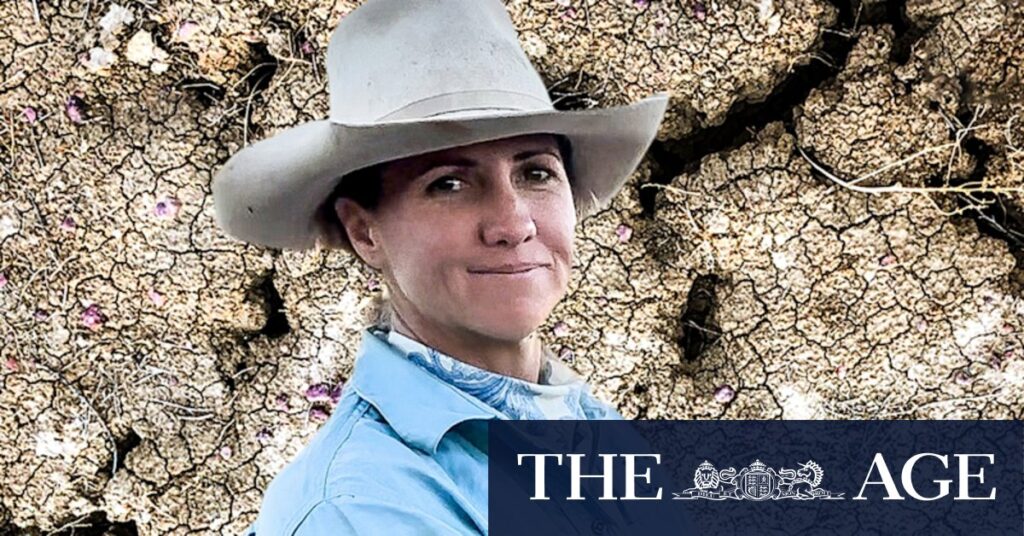
Jody Brown’s journey through two decades of relentless drought in western Queensland has been a testament to resilience and adaptation. Since finishing high school in 2001 and joining her family’s farm near Longreach, she has witnessed firsthand the harsh realities of climate change. The drought that gripped the region, with only brief respites, has shaped her into a proponent of regenerative agriculture and a vocal advocate for climate action.
Brown’s memories of these dry years paint a vivid picture of endurance and despair. Her family’s 45,000-hectare Latrobe Station, once vibrant with Mitchell grass plains and gidgee scrub, suffered under the scorching sun. “It’s a slog. It’s a slow burn. You never know when it’s going to end,” she reflects. The drought’s severity was underscored by haunting scenes, like kangaroos abandoning their joeys to survive.
The Climate Crisis Intensifies
The climate crisis was starkly apparent as Brown drove to a conference in Byron Bay in 2019, listening to news reports of widespread fires in New South Wales and devastating floods in northern Queensland. The juxtaposition of these extreme weather events highlighted the unpredictable and severe impacts of climate change.
At a recent Farmers for Climate Action conference in Canberra, Brown shared her concerns about the increasing frequency of brutally hot days that threaten her regenerative efforts. Her fears were echoed by Professor Mark Howden, a leading climate expert, who warned that the world had breached the 1.5-degree warming threshold for the first time. This breach, he explained, was due to the failure of nations to curb carbon emissions since the Paris Agreement.
“We have to go cold turkey,” Howden urged, emphasizing the urgent need for drastic emission reductions.
Scientific Insights and Policy Challenges
Howden illustrated how rising greenhouse gases are translating into higher temperatures and more extreme weather in Australia. He presented data from the Copernicus Climate Group, showing a dramatic increase in days exceeding average temperatures over recent decades. This trend poses severe challenges for agriculture, impacting crops, livestock, and ecosystems.
As temperatures rise, rainfall patterns are shifting, with rain becoming less predictable and more destructive. Howden’s message was clear: the science and policy must align to address these urgent challenges, yet current efforts fall short.
Political and Environmental Implications
Australia’s Climate Change and Energy Minister, Chris Bowen, acknowledged the gravity of the situation. He addressed the conference, noting the delay of the National Climate Risk Assessment, a crucial document outlining the threats Australia faces. This delay has sparked concerns about its entanglement in political complexities.
Australia’s credibility on the global stage, particularly in its bid to host the UN COP climate talks, hinges on its commitment to emission reductions. The government is under pressure to set ambitious targets, with climate advocates pushing for significant cuts.
Former Fire and Rescue NSW commissioner Greg Mullins described the potential impacts of climate change as “horrifying,” emphasizing the unsustainable burden on emergency services as temperatures rise.
Looking Ahead: Urgent Calls for Action
As Brown returns to her farm, she remains hopeful that the government will adopt aggressive emission targets. “To be honest, I want to see a target of at least 85 per cent,” she states, highlighting the need for bold action to protect agriculture and the environment.
The unfolding climate crisis demands immediate and decisive action. The upcoming release of the National Climate Risk Assessment is expected to provide a stark reminder of the costs of inaction. As Brown and other advocates continue their fight, the world watches to see if Australia will rise to the challenge and lead the way in combating climate change.






